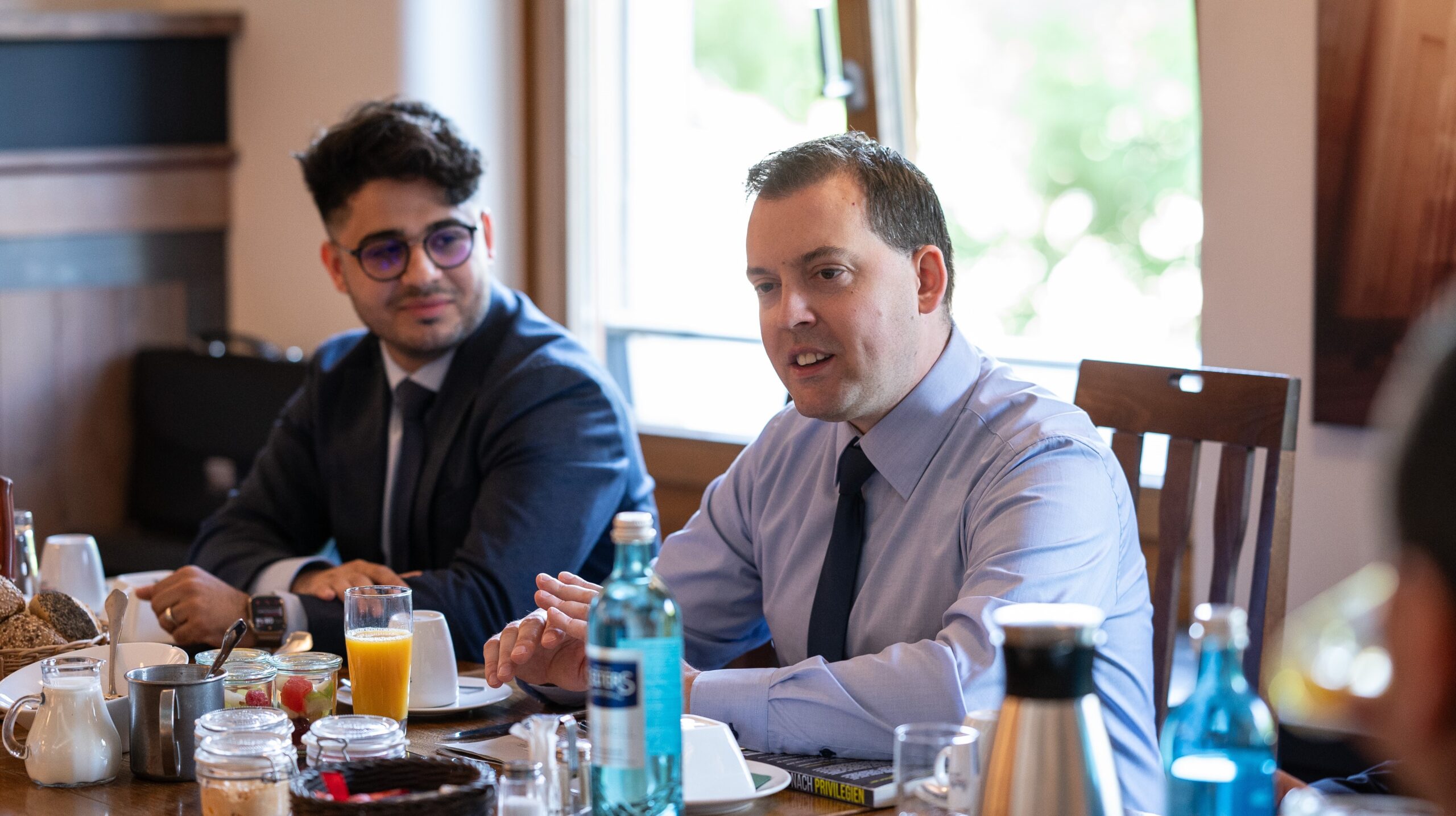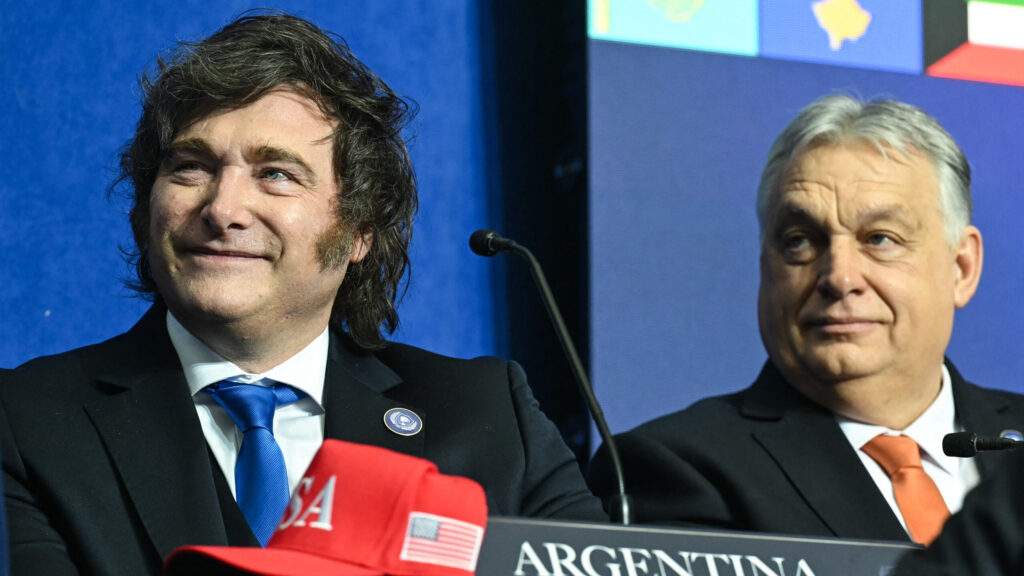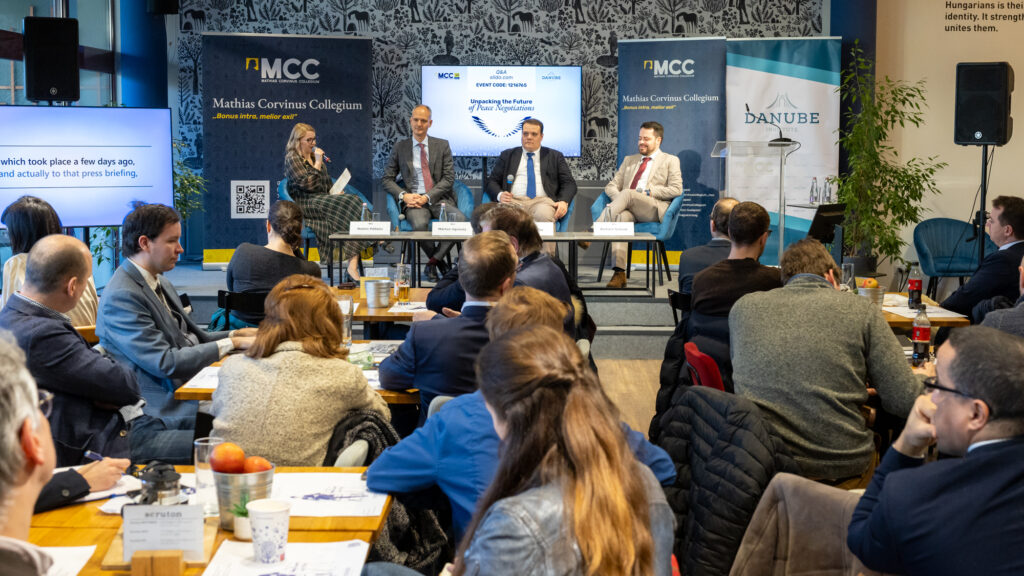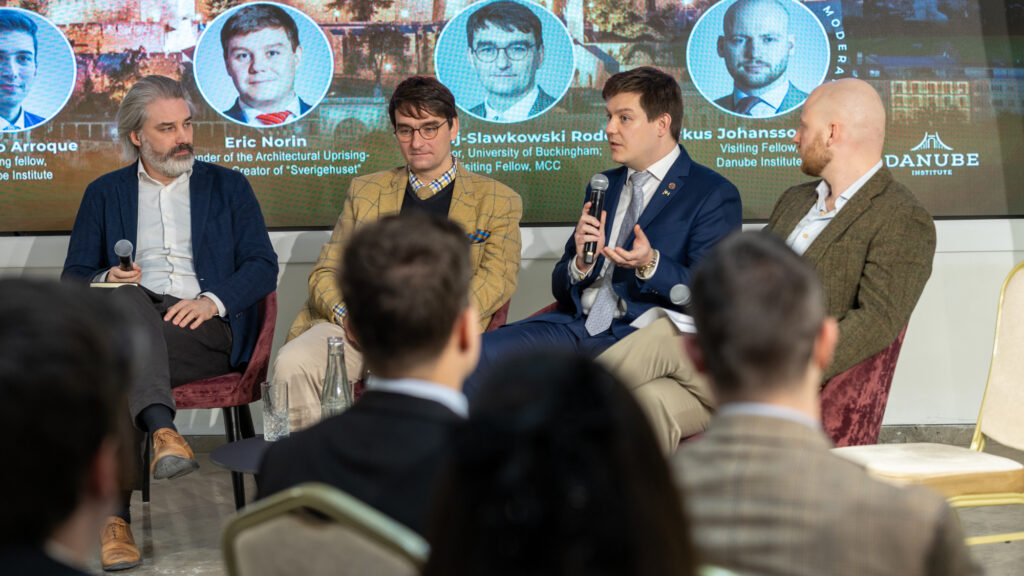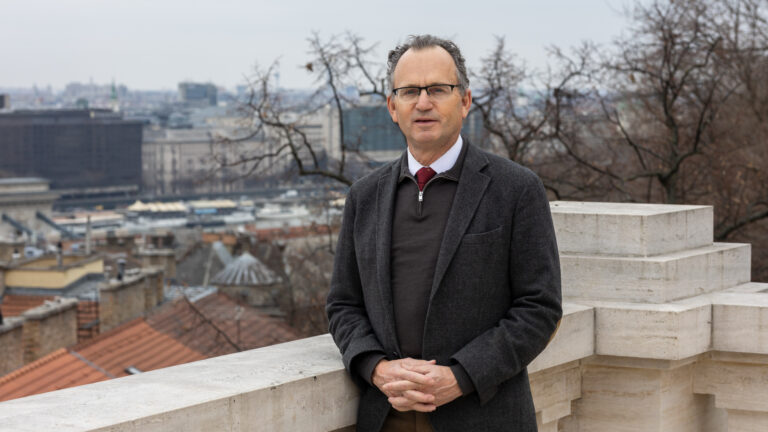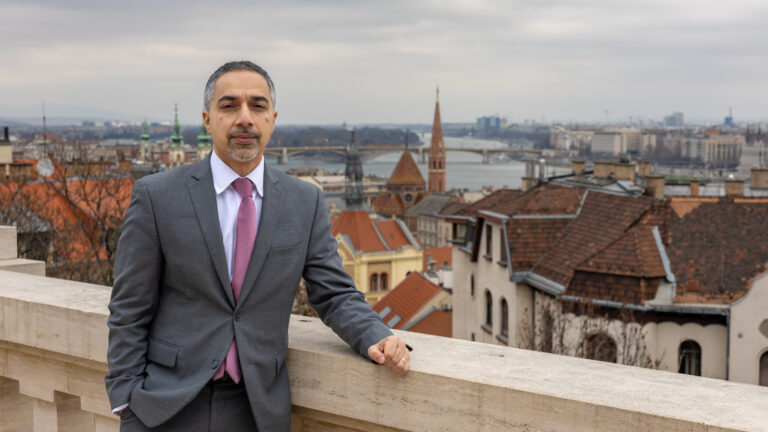Nickolas Emrich is a German polymath: a lawyer, entrepreneur, former police officer, bestselling nonfiction author, and political reform advocate. He is known for his direct critique of institutional privilege, inefficiency, and the widening gulf between theory and practice in German and European society. His media presence and books mark him as a rare practitioner-theorist, speaking to both elite and popular audiences.
In a Germany wrestling with mounting fiscal burdens, intrusive bureaucracy, and a creeping sense of institutional sclerosis, voices championing individual liberty and free-market reform have seldom felt more embattled—or more relevant. At the forefront of this libertarian current stands Nickolas Emrich: bestselling author, entrepreneur, mediator, former police officer, and—in his latest role—Deputy Chairman of the Hayek Society, the country’s leading platform for Austrian School thought and the defence of economic freedom. Emrich’s sharp critique of ‘privilege addiction’ and neo-feudal entitlements, detailed in his recent bestseller, resonates far beyond Germany’s conservative milieu. For readers abroad, and especially for the Hungarian Conservative’s audience, he and the Hayek Society together offer a rare window onto a vibrant, if embattled, intellectual tradition—one that seeks remedies not in technocratic fixes, but in the revitalization of civic initiative and the honest reckoning with what Emrich calls Germany’s ‘systemic impasse’. In the following conversation, we delve beyond the headlines and statistics into the lived realities and convictions of a figure who sees the country’s fate at a crossroads: between increasingly unsustainable state expansion, and the promise—still untested—of renewal.
***
Nickolas, before we turn to big policy debates, your career path could hardly be more unconventional: law student, entrepreneur, police officer, bestselling author, and now deputy chairman of the Hayek Society. What drove you to embrace such a varied life—and how did these experiences shape your commitment to a liberty-oriented, Hayekian vision for Germany?
For me, curiosity has always come first. I never set out to accumulate career titles—what fascinated me, and still does, is trying to understand how different worlds function. Growing up in Kreuzberg, I saw the full spectrum of German society from a young age: privilege and poverty, tradition and constant change. That left me with a sense that the standard answers—whether from the political left or right—rarely survived contact with the real lives that people actually lead.
So, I tried things for myself. As a young man, I was drawn to entrepreneurship partly out of a desire for independence, but also as a practical experiment: I wanted to know what risk actually feels like, what it means to navigate rules and regulations not on paper, but in daily business. Later, joining the police was not about following a career path—it was about the same urge to understand society from the inside out: Who are the people making the rules, enforcing them, struggling with them? You see all the contradictions up close, and you also realize just how often systems fail—not because of malice, but rather inertia or complacency.
If there is a common thread running through my life, it is the wish to see Germany from as many vantage points as possible. Every phase—law, business, public service—has shown me that the difference between principle and lived reality is usually vast. That is what drew me, in the end, to the ideas of Hayek: scepticism about grand utopias, a belief in the limits of our knowledge, and a trust that people, when left free to act and to take responsibility, will create far more good than any system designed by experts in an office.
My present role in the Hayek Society feels less like an arrival and more like a continuation of that search: How do we carve out more space for freedom in a country where the default answer is almost always ‘more rules’, not more responsibility? I do not pretend to have final answers. However, if there is one thing my mixed career has taught me, it is that genuine curiosity and a willingness to learn from experience are worth more than any ideology, left or right.
You mention that your role in the Hayek Society feels like a continuation of your lifelong search for genuine freedom in Germany. For our readers less familiar with the Society, how would you personally describe its purpose and relevance today? What attracted you, after so many first-hand experiences in business and public service, to championing Hayekian principles at this moment?
I appreciate the question, because the Hayek Society today is in many ways at a crossroads—both internally and in terms of its role in Germany’s broader intellectual landscape. Formally, we are the Friedrich August von Hayek Society, founded in 1998 as an interdisciplinary and non-partisan platform for the advocacy of classical liberalism and the Austrian School of economics. Our remit stretches far beyond academic circles: we deliberately seek to bring together thought leaders, entrepreneurs, scientists, and journalists committed to a free society and the primacy of the individual in public life.
‘Joining the police was not about following a career path—it was about the same urge to understand society from the inside out’
Since becoming one of the vice chairmen this year, I have been part of a new leadership group trying to guide the Society through a process of modernization. We are very much aware that Hayekian ideas must be articulated and defended in contemporary language—otherwise, they risk being confined to the seminar room or misunderstood as mere nostalgia for the past. One example of this renewal is our new members’ magazine, hayekforum – magazin für die freiheit. The aim is not to create an elitist in-house journal, but to establish a lively forum for debate, analysis, and pointed interventions—bridging the gap between academic theory and social and political practice. The first issue, just released, features contributions from across the liberal-conservative spectrum, including new voices from our growing youth and club networks.
I would also be dishonest if I pretended there are not some tensions within the Society. We have a very diverse membership, ranging from startup founders and public intellectuals to critical civil servants, academics, and even controversial figures from public life. That diversity is both our greatest asset and, at times, our greatest challenge. There is an ongoing debate about the Society’s public positioning, its openness to new ideas—and, yes, how close or distant we ought to be from party politics or particular policy fields. For me, being Hayekian is precisely about this argumentative openness: refusing to retreat into dogma, insisting on the contest of ideas, and exposing ourselves to scrutiny both from inside and outside.
Perhaps the best example of our attempt to set a contemporary agenda was the decision to award last year’s Hayek Medal to the Argentinian president, Javier Milei. The choice, unsurprisingly, drew a great deal of public attention. For us, Milei embodies both the potential and the controversy inherent to radical market-oriented reform. He is a self-professed Hayekian who has managed to emerge as a reformer in one of the world’s most crisis-prone economies. Whether all his policies are wise is open for debate, but he broke the taboo that only ‘technocratic’ solutions or state expansion could offer responses to profound societal malaise.
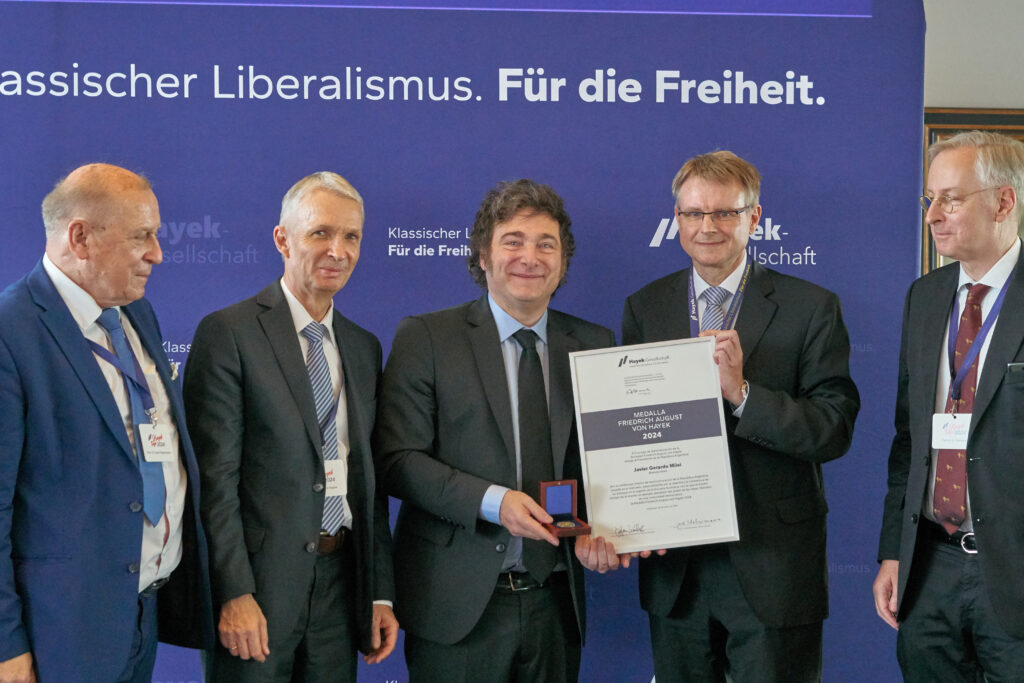
That brings me to our plans for the Hayek Medal going forward. The world has become smaller and more interconnected, and the contest of ideas is global. We are committed to making the honour more visible—by awarding it to men and women who defend freedom, market order, and personal responsibility with real courage, wherever that takes them. At the same time, we intend to foster a much broader public debate around each awardee, precisely to avoid the perception of echo chambers or intellectual isolation.
In sum, the Hayek Society stands for the pluralism and productive conflict at the core of every living liberal tradition. Our mission now is not only to honour the legacy of Hayek, but to ensure his insights remain sharp tools for confronting the contemporary challenges of German, European, and indeed global society. We are in the midst of a genuine process of modernization, and we welcome both admiration and criticism as proof that our work is hitting a nerve. That, to me, is the best evidence that the Society is alive, relevant, and in genuine dialogue with the tensions of our age.
You speak frankly about the internal challenges facing the Hayek Society and the need for open debate—not just about market theory, but about contemporary German realities. For many of our international readers, ‘Germany’ still evokes stereotypes of order, reliability, and social cohesion. Yet, if one looks closer, that image seems less and less accurate. On social media, influencers point to the erosion of public order and basic trust. Polls repeatedly show a profound loss of confidence in the state and a growing sense that free speech is under threat. These anxieties are no longer confined to online forums: a recent CBS 60 Minutes investigation revealed how Germany deploys dedicated police units to monitor and prosecute online speech, often blurring the line between the fight against incitement and the policing of dissent. At the Munich Security Conference, JD Vance’s remarks on declining civic confidence were widely seen as taboo-breaking, shining a light on issues often downplayed in German public life.
From your vantage point—as someone who has observed and experienced both the official narrative and the reality on the ground—what do you see as the deepest challenges to freedom and stability in Germany today? What specific problems most urgently demand attention? And, importantly, how can they be addressed from a genuinely liberty-oriented, Hayekian perspective—especially for a country long accustomed to seeing itself as the paragon of stability?
That is a crucial question, and I appreciate the chance to confront it without euphemism. For decades, Germany’s self-image—and its external reputation—has rested on a handful of cherished virtues: reliability, social partnership, technocratic prowess, and civic order. The reality today is much closer to a story of systemic fatigue, growing resentment, and a creeping sense of institutional illegitimacy.
Let me begin with the most visible symptoms: we see the breakdown of public trust not merely in abstract numbers, but in daily experience. Trains and public services are late or dysfunctional, urban centres feel increasingly unkempt, law enforcement and local administrations are stretched thin, and even basics like personal safety and well-functioning infrastructure, once taken for granted, are no longer assured. The perception of disorder is not manufactured; it is lived by millions.
From there, you reach the deeper sources of malaise—many of which revolve around the question of privileges, special rights, and systemic imbalance. This is the core argument of my book, Gier nach Privilegien (Greed for Privileges). Germany is a society divided not only between rich and poor, but increasingly between those who enjoy tailored privileges—civil servants, politicians, select corporate insiders—and the vast middle whose contribution is measured by how much they can supply to a bloated system.
Just look at the contrast between civil servant pensions (Beamtenpensionen) and the retirement prospects of ordinary employees. You have a situation where high-ranking officials and parliamentarians retire on systems shielded from demographic risk and market forces—while the average worker, after decades of contributions, faces an ever-shrinking pension in real terms. The imbalance is not just financial, but cultural: it sends a signal that the system rewards proximity to the state, not merit or honest labour. Politicians, too, live in a world apart—from fast-tracked healthcare to career protections and an insulation from the consequences of their own decisions.
‘The perception of disorder is not manufactured; it is lived by millions’
This structure of privilege saps not only economic dynamism, but civic spirit. When you add to the mix a labyrinthine bureaucracy—operating under the mantra ‘one more rule fixes the last failure’—you end up with a machine that is excellent at immobilizing initiative and punishing efficiency. The true engine of the economy, the Mittelstand, faces staggering social charges, mountains of compliance, and sees little return for its risk-taking. Meanwhile, each political party promises to defend supposedly sacred social standards, even as the system they protect creaks ever more loudly under its own contradictions.
And these contradictions are multiplying. There is the issue of unsustainable welfare expenditure, including the open secret that a growing share is now allocated to newcomers, to migrants who have never paid into the system and whose integration is obviously far from assured. The fundamental principle of reciprocity—that what you take out must roughly correlate with what you put in—risks permanent eclipse. All of this is taking place against the backdrop of one of the greatest demographic crises in the developed world: a shrinking, ageing core population burdened with ever-expanding entitlements, while the fiscal and social foundation steadily erodes.
The loss of faith in free expression is merely the cultural reflection of this deeper malaise: In a system where meaningful debate is seen as dangerous and dissent is met with formal or informal sanction, it becomes ever harder to mobilize the renewal we so desperately need.
How can these problems be addressed? The Hayekian answer is not a call for revenge or radical rupture. It is a call for renewed realism, honesty, and a systematic reversal of privilege. First, we need a fundamental audit of all entitlements and privileges: Are they justified by genuine public benefit, or are they artefacts of political bargaining and inertia? Second, we must move towards a true unification of social insurance—no more privileged pensions, no more two-tier access to benefits. Third, we need to deregulate and slim down the bureaucracy, radically empowering both entrepreneurs and local communities to solve problems the state can no longer handle.
These are not utopian ambitions. Other countries have done it under conditions of crisis. But in Germany, it will take a moral reawakening: a civic willingness to break with the comfort of old guarantees, and to embrace risk and accountability as the price—and promise—of true freedom.
Ultimately, if Germany wishes to remain a model for others, it must stop exporting platitudes and start confronting the uncomfortable truths that are now plain to anyone willing to look beyond the slogans. That is the work of those who identify as real liberals—not because it is easy or popular, but because the cost of evasion will be borne by the next generation.
When listening to your description, I have to think about a concept that has received considerable attention here in Central Europe, particularly in Hungary: the ‘workfare state’. Unlike the traditional welfare state, which emphasizes unconditional social transfers, the workfare model prioritizes the principle that social security should be closely linked to personal effort, contribution, and responsibility. In Hungary, this has translated into policies where benefits are increasingly conditional on participation—active engagement, retraining, or community work—rather than simply being guaranteed entitlements.
What I find fascinating about this model is that it emerges, at least in part, in direct response to many of the negative developments you have so sharply described in Germany: persistent privilege, passive dependence, and the gradual crowding-out of productive initiative by expansion of bureaucratic entitlement. The workfare state is, in this sense, not only an abstract idea, but a pragmatic answer growing out of crisis.
I have had the privilege of following your thinking for quite some time, and you will not be surprised that I want to bring up a favourite example of yours—the ‘island parable’—which, for me, perfectly illuminates why these structural questions go to the heart of today’s malaise. Could you share that island example for our international readers, and explain why it so vividly demonstrates what is at stake in the struggle between productive energy and institutional privilege in Germany today?
I had a feeling this topic would make an appearance in our conversation! The island example is a little story I have used often because it captures, in its simplicity, the dynamics we currently see writ large across developed societies, and especially in Germany.
Imagine three strangers stranded on a deserted island. The first is practical and forward-looking. He spends his days gathering coconuts, building shelter, and setting aside reserves for difficult times. The second is carefree, perhaps short-sighted. He lives for the moment, quickly consumes whatever is at hand, and takes little thought for tomorrow. The third does not gather or consume in the usual way. Observing the situation, he declares himself a ‘facilitator’—a sort of proto-politician. Soon, he announces that, in order to ensure fairness and maintain order, there needs to be a redistribution.
He proposes a rule: one third of the island’s resources—coconuts, warmth, shelter—will remain with the industrious gatherer who produced them. One third will go to the improvident islander who failed to provide in advance. And the final third will be reserved for himself, as the ‘administrator and regulator’ of social harmony.
‘These are not utopian ambitions…But in Germany, it will take a moral reawakening’
The parable may sound light-hearted, but it is a striking reflection of reality. In modern Germany, the expansion of social privilege has nothing to do with the long-term health of the whole society or the virtues of genuine solidarity. Instead, privilege accumulates around roles and rules: who can position themselves as the indispensable intermediary, who can negotiate special rights (Beamte), carve out carve-outs, and engineer new forms of redistribution that—uncoincidentally—reward their own role within the system.
The cumulative effect is corrosive. The actual producers, risk-takers, and workers in the middle face the heaviest burdens, punished for their foresight and effort. Those who live without regard for sustainability or contribution are subsidized in innumerable ways. And the largest gains accrue to the ‘politicians’ and intermediaries—the architects and administrators of the redistributive machinery—who thrive on complexity and permanently expand their own privileges.
My criticism is not a lack of solidarity or compassion. On the contrary: true community rests on mutual responsibility, not bureaucratic privilege. If we are serious about mending the fractures of German society—in pensions, social security, migration, or opportunity—we have to begin by reigning in this machinery of privilege and returning to first principles: that no society can endure for long if the fruits of effort are permanently channelled into the preservation of official roles rather than the encouragement of common flourishing.
The island, in other words, will only survive if it rediscovers the logic of reciprocity—not just through economic policy, but through moral clarity and honest dialogue about who really benefits from the rules we make.
Nickolas, I have to say—I never tire of hearing your island example. Each time I read or hear it, I find it both beautifully simple and deeply illustrative of our current malaise. But let me turn the conversation to the next generation.
In your work—as an author, a police officer, and now as a leader in the Hayek Society—do you sense a genuine curiosity or civic hunger among young Germans to question these entrenched structures? Are you encountering a new willingness among the younger generation to challenge the privilege and bureaucracy we have discussed, or does resignation run deeper than you would hope? And what, if anything, gives you hope for a freer, more dynamic civic culture in the years ahead?
Thank you for saying that—the ‘island example’ really does seem to resonate, especially with those who are just starting to grapple with questions of fairness and responsibility in society. It encourages people to ask: What are the real incentives at work? Who truly benefits from our rules and structures, both seen and unseen?
When it comes to the younger generation, I genuinely see both frustration and hope. On the one hand, there is an unmistakable weariness with bureaucracy, with privilege, and with the apparent sense that the system is stacked against new ideas or independent effort. But—perhaps more importantly—there is also a raw curiosity, a visible hunger to understand economic and institutional realities as they are, not as they are described by platitudes or political ritual.
‘True community rests on mutual responsibility, not bureaucratic privilege’
In fact, one of the positive developments I have observed in recent years is the emergence of new platforms and actors that reach beyond the established structures. The Danube Institute, for example, stands out to me as an impressive example of how a focused, intellectually ambitious initiative can achieve real impact—outreach, education, substantive dialogue—far beyond what many larger, more traditional organizations have managed. Their work in engaging younger voices, supporting critical inquiry and hosting international debates is genuinely refreshing.
Speaking as vice chairman, it is precisely this spirit of openness and observation that I wish to bring to the Hayek Society. We are keenly aware that modernization must mean more than just administrative reform. It must mean seeking inspiration from those—like the Danube Institute—who are succeeding in bringing new generations into serious conversation about freedom, responsibility, and the future of our societies.
Our task, as I see it, is to remain vigilant and self-critical: to see where others excel, to learn from their experiments, and to open our own doors to the civic curiosity and engagement that is so visibly on display elsewhere. If we can do that, I am confident that the Hayek Society can become not just a guardian of tradition, but an incubator of real renewal in Germany’s public life.
Related articles:

